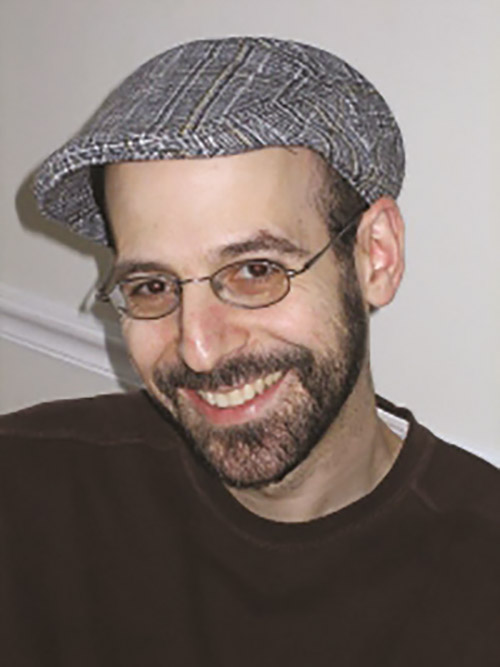

On February 9, Fairfield University’s Judaic Studies program and the Bennett Center for Judaic Studies welcomed Dr. Joshua Shanes, associate professor of Jewish Studies and director of the Arnold Center for Israel Studies at the College of Charleston, to kick off their spring lecture series. More than 300 devices logged in for the virtual lecture.
Shanes’ controversial presentation “A Growing Schism: Politics and Identity Among Orthodox and Non-Orthodox Jews,” explored his views of the political-identity divergence between Orthodox and non-Orthodox Jews in the context of American trends and the role of Jewish politics. Shanes was introduced by Gavriel Rosenfeld, professor of history and director of the undergraduate program in Judaic Studies at Fairfield University. Rosenfeld described how Shanes was raised in Chicago and attended a Conservative day school, but has identified as Orthodox for about 30 years as part of communities in Chicago, Vienna, Beitar Illit and Jerusalem.
Shanes began, by stating: “Post-war Orthodoxy is an amalgam of communities often with different perspectives coalesced around a big tent called Orthodoxy. It can be crudely divided between Modern Orthodox, socially interested and Zionist; and the ultra-Orthodox, opposing Zionism and segregating themselves.”
He described “recent scholarship that these divisions within Orthodoxy are collapsing as Modern Orthodoxy slides to the right, while ultra-Orthodoxy increasingly engages with broader society.”
However, he noted, “There is a broader factor pulling the camps together. Over the past two to three decades, American Orthodoxy, like much of Christianity, has coalesced around an ethno-national identity that views the political right, its ultra-nationalist worldview in America and in Israel, as a religious foundation united against the cultural left, and absorbed these nationalist values into the center of it religio-political identity.”
Shanes continued: “A new political tribalism has emerged throughout Orthodoxy: of fidelity to a specific political community as part of communal boundaries and celebrates ethnic aspects of Jewish tradition over the prophetic and religious traditions of humanism and social equality that are more pronounced in the other denominations. This translates into a reactionary American conservatism against the anti-religious orientation of the left.”
Shanes stated that American Jews typically “maintain liberal politics on social, economic and cultural matters, despite achieving economic success”; however, “Orthodox Jews today have swung the opposite way … In 2016, non-Orthodox Jews voted against Trump, while Orthodox Jews swung sharply red. In 2020, it seems that 10-15 percent of non-Orthodox Jews voted for Trump while Orthodox support ranged 50 to 60 percent in more integrated communities to 90 percent in the ultra-Orthodox.
“Overwhelming consensus of anti-Zionism among Orthodox Jews a century ago has almost totally evaporated in favor of technical anti-Zionism among some ultra-Orthodox but de facto Israelism among almost all of them,” Shanes continued. “It is the more liberal Orthodox who, because of the more pronounced Zionist vision, want to express the more radical and illiberal views on Israel, which cause alliances here in America … The haredi are not Zionist, but they are Israelist. They have elevated Jewish supremacy, throughout Israel and the territories, to a religious value just as the Modern Orthodox.”
In addition to his academic work, Shanes has published his personal views on modern Jewish politics, culture and religion as well as contemporary politics and anti-Semitism. He is writing a history of Orthodoxy for the Rutgers series on “Key Words in Jewish Studies.”
By Judy Berger












